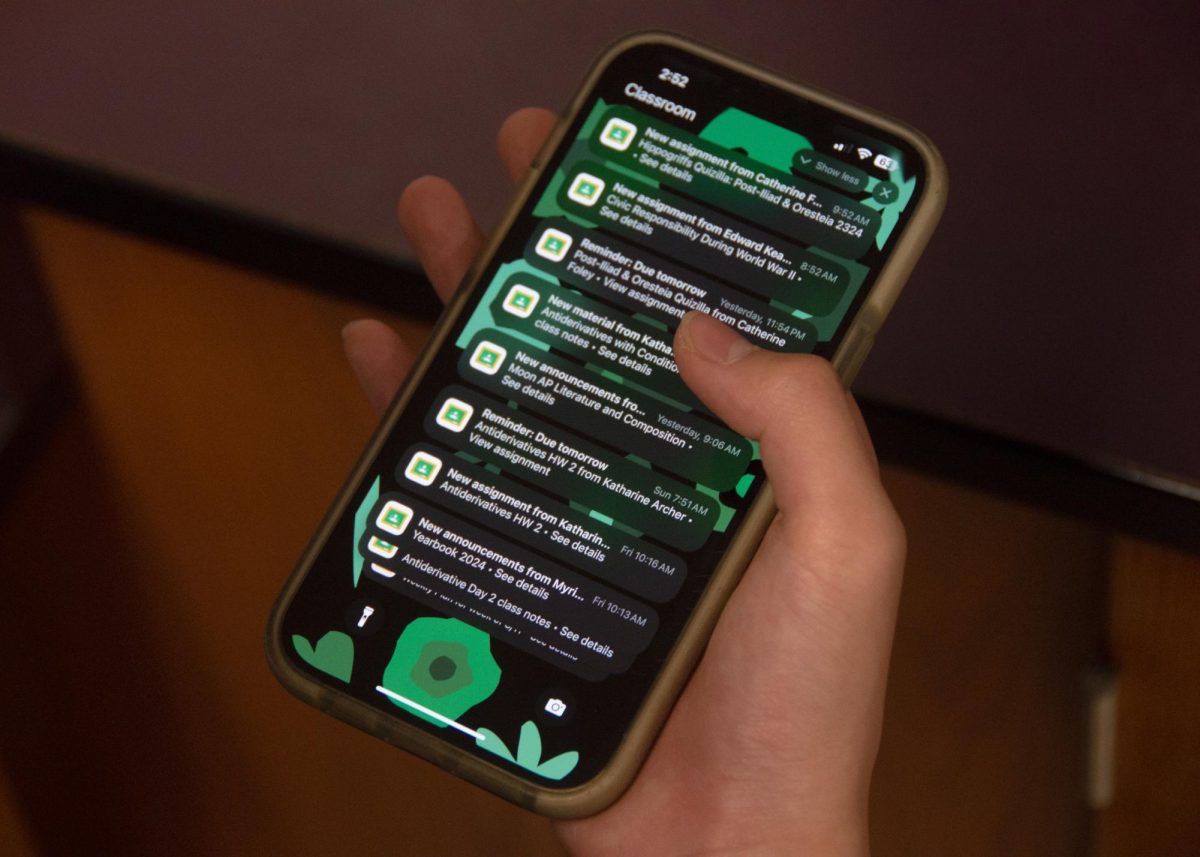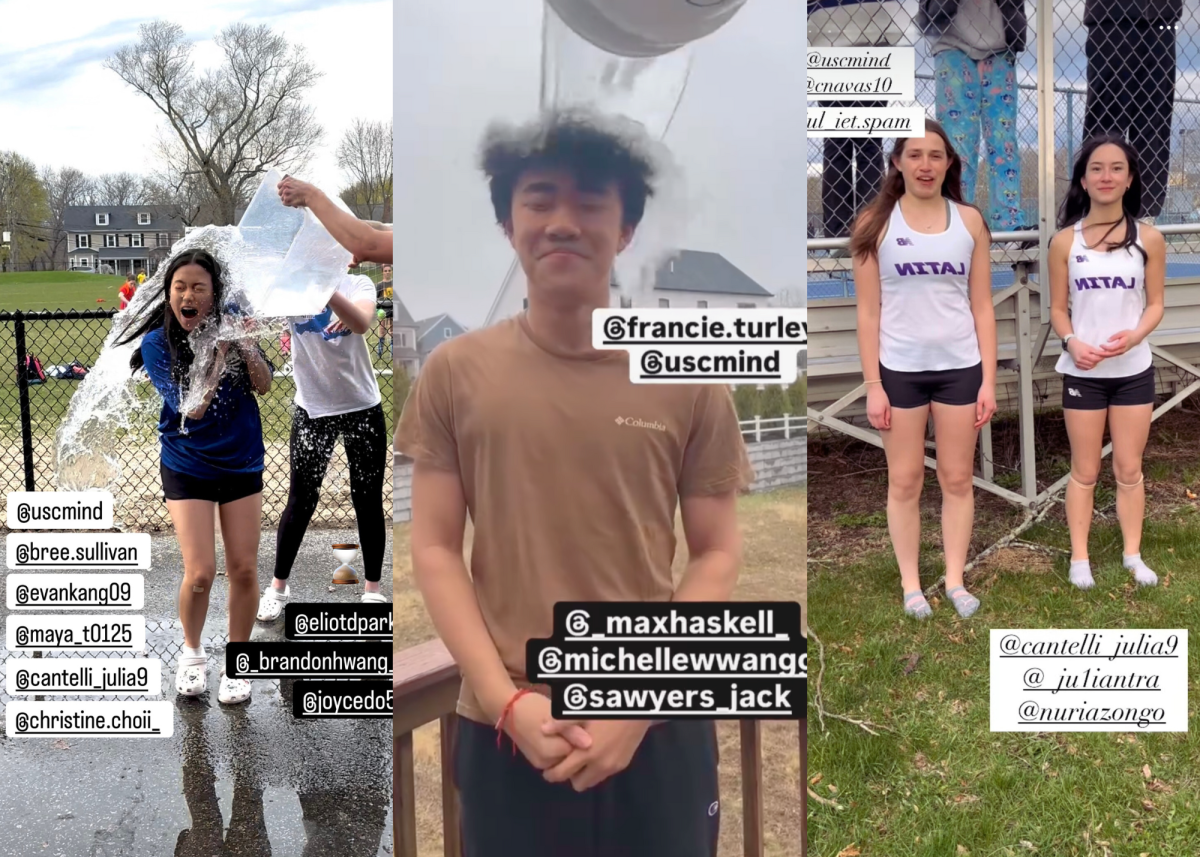Ever since the COVID-19 pandemic, digital learning platforms have become a more popular way of teaching in schools. Websites like Google Classroom, DeltaMath and Edpuzzle are often incorporated in day-to-day school life as students have transitioned back into real classrooms, but what are the long term effects of the increasing reliance on these platforms? As the use of online learning platforms increases, the work environment of students is negatively impacted and the future of learning within classrooms is at risk.
After the pandemic, it became far more common for teachers to use online platforms to create tests and quizzes. Many enjoy using online apps for multiple-choice tests because the platforms can grade them automatically.
As plagiarized work from online tools becomes more common among students, however, lower test grades are also becoming more common in classrooms. This is because students do not truly understand what they are learning, since websites are always there as an auxiliary measure.
During the pandemic, digital platforms were the only way to continue learning. After the return to in-person, schools did not stop using these programs. As institutions continue depending on digital platforms for teaching, the possibility of education in the future being completely online arises. Boston Latin School AP U.S. History teacher Mr. Dominic Rinaldi raises this concern, “We won’t necessarily have the ability, some point down the road, to snap back into the way we used to be.”
Access to the vast networks of information provided by these platforms can make students lazier when it comes to actually completing work. Students become reliant on digital platforms to get their work done since it is easier to find answers online. Mr. Rinaldi says these platforms “desensitize students to the importance of gaining knowledge because it’s always there, if you need it you can google it.”
As the constant use of apps on the internet increases, students aim to submit work rather than taking the time to understand and learn from assignments given. This can impact homework too; easy access to answers from apps like Quizlet or SparkNotes eliminates the “further practice” aspect of homework, making it far less worthwhile. Procrastination can also become more common, as deadlines at 11:59 P.M. can cause students to put off their work until the last minute — late at night. This can lead to a decrease in the quality of work, because students are turning in rushed work to avoid it being “marked late” on Google Classroom.
Digital learning can also disrupt the human element of teaching and learning. The more slideshows and online presentation platforms are incorporated into lectures, the more limited become connections between teachers and students. When teachers switch to reading off slides while students take notes, learning becomes far less engaging and exciting. It is important to find a balance between hands-on and online learning.
The ability to use technology is also becoming a crucial skill for learning in the future. This can create a divide between the older generation, who grew up with less technology, and the younger generations, who are children of the internet. Teachers and adults now have to learn the new skillset of navigating digital learning platforms, which can be a difficult learning curve.
Constant use of chromebooks to access online sites can also be detrimental to the mental health of students. Some may argue that online platforms are less unhealthy because they are used for knowledge, but the vast amounts of dopamine, or instant gratification, received on social media can be received on other digital platforms as well. When students turn assignments in on Google Classroom, sometimes it becomes more about receiving the gratification from seeing assignments go away, than actually putting their best effort into their work.
The same goes for the Aspen Student Information System (SIS) where students are constantly checking their grades to validate themselves, or doubting themselves when their grades do not match their expectations. This feeling may cause students to overwork themselves, and possibly experience burnout in exchange for an increased grade. BLS English teacher Mr. Michael Vallone notes, “[Students] start to second guess their abilities […] unless they have that sort of external validation”.
Live grades on digital platforms become unhealthy as students begin to feel anxious and stressed over their grades. Mr. Vallone voices this concern, stating, “I hear students in the hallways all the time, talking about their grades in SIS and I’m not sure if seeing that students are checking it every single day and getting anxiety, is healthy.”
With students on their screens in school in addition to their screen time outside of school, they are virtually never offline. Sitting in front of a screen during school, then sitting again in front of a screen for homework, becomes straining for the developing teenager. “Considering we are on screens most of the day now, sometimes I just want to shut off my chromebook but I can’t since I have an assignment due online,” Maya Tran (II) explains.
Having to sit in front of a computer while reading a PDF or using a digital app for schoolwork causes students to have an even higher screen time, which negatively impacts their well-being. It is easier to limit screen time for social media, but for school, students most likely have no choice but to continue using online apps because their learning tools and assignments are online.
Technological apps do offer some benefits, like allowing students and teachers to stay organized, or providing further explanations to unfamiliar topics for students. Even so, it is crucial that we do not rely on digital apps too heavily, as they can quickly become destructive to the future of learning.








